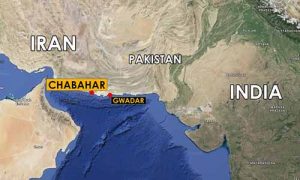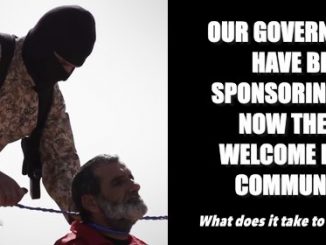
Europe’s Plans for Trade With Iran Show New Independence From Washington
The concerted European economic surge toward Iran has outraged National Security Adviser H. R. McMaster as well as the Israeli, Saudi and UAE governments, who are hoping to convince the world to reestablish economic sanctions on Iran despite the JCPOA or nuclear accord.
JUAN COLE
Despite the significant economic problems Iran faces, and despite the real problems in unequal income distribution, Iran’s economy is seeing bright spots that the Western press rarely admits. In the year after international sanctions were lifted on the signing of the nuclear accord, spring 2016-spring 2017, the economy surged 16%. It is settling down now into a regular 4% a year growth or so and is trying to grow its non-oil economy. The recent stiffening of oil prices will also help.
 Any economic progress Iran makes is in the teeth of strong American opposition and a continued desire of Washington to keep Iran poor and weak. The economic protests of January, 2018, highlighted the challenges Tehran faces in satisfying people outside the large cities with regard to unemployment and share in any national progress.
Any economic progress Iran makes is in the teeth of strong American opposition and a continued desire of Washington to keep Iran poor and weak. The economic protests of January, 2018, highlighted the challenges Tehran faces in satisfying people outside the large cities with regard to unemployment and share in any national progress.
Just for an example of the challenge the Trump administration faces in isolating Iran economically, Iranian trade with Denmark grew 11% in 2017, but the kicker is that Iranian exports to Denmark grew nearly 38%, giving Iran a highly favorable balance of payments. Denmark is hardly Venezuela. It is a conservative, small northern European country that belongs to NATO. But like much of Europe, it has embraced the 2015 nuclear deal, which removed international economic sanctions on Tehran.
The Republicans in the US Congress have never accepted that deal and have tried to spike it by keeping US sanctions on Iran and, mafia-like, threatening third parties who trade with Iran. But the world increasingly just doesn’t care. Denmark and Iran did $320 mn. in trade last year and that is small potatoes compared to what the rest of Europe has in mind.
France, Belgium, Italy and other European countries are setting up state-backed Euro-denominated investment and trade pipelines that avoid US currency and banks. The US Treasury Department has been using the dollar’s status as the world’s reserve currency to punish European companies that do business with Iran in dollars and using US banks and exchanges. But if all US instruments are avoided, then Treasury’s Office of Foreign Asset Control (many of whose activities affect freedom of speech and association and are probably unconstitutional) has little recourse in international courts and is defanged. Italy alone is planning to invest $5 bn in Iran.
This concerted European economic surge toward Iran has outraged and angered National Security Adviser H. R. McMaster as well as the Israeli, Saudi and UAE governments, who are hoping to convince the world to reestablish economic sanctions on Iran despite the JCPOA or nuclear accord.
The argument that Iranian companies are owned by the Iranian military or Iran’s paramilitary organizations is being met by a concerted Iranian push to divest its military of key economic enterprises so as to reassure international investors.
In the region, Iran has a hugely beneficial trade surplus with Iraq, sending it over $6 billion in goods a year, but buying only a few million worth in return. Iranian trade with Thailand and Indonesia has also surged, and China, India and Turkey continue to ignore Washington’s increasingly idiosyncratic jihad against Iran.
 In fact, despite a halving of Iran-India trade in the past four years owing to sanctions, India now has plans for a huge expansion of trade with Iran, and for using Iran’s Chabahar port (see image) to sidestep Pakistan and gain access to the Central Asian and Russian markets.
In fact, despite a halving of Iran-India trade in the past four years owing to sanctions, India now has plans for a huge expansion of trade with Iran, and for using Iran’s Chabahar port (see image) to sidestep Pakistan and gain access to the Central Asian and Russian markets.
US pressure on Iran is not insignificant and does slow its economic progress. But if you tallied up wins and losses, there does not seem much question that Iran is gradually winning. That progress by Tehran is because of the nuclear accord, which reassured most of the world. Tehran should stick with it.
************
Original article
ER recommends other articles by MintPress News, and Informed Comment where this article originally appeared
Featured photo of HR McMaster courtesy of Evan Vucci / AP
Photo | Iranian President Hassan Rouhani attends a meeting with Emmanuel Macron and French business leaders in Paris, Jan. 27, 2016. (AP/Christophe Ena)
Juan Cole teaches Middle Eastern and South Asian history at the University of Michigan, his new book, The New Arabs: How the Millennial Generation Is Changing the Middle East (Simon and Schuster), will officially be published July 1st; he is also the author of Engaging the Muslim World and Napoleon’s Egypt: Invading the Middle East (both Palgrave Macmillan)l He has appeared widely on television, radio and on op-ed pages as a commentator on Middle East affairs, and has a regular column at Salon; he has written, edited, or translated 14 books and has authored 60 journal articles; His weblog on the contemporary Middle East is Informed Comment.




